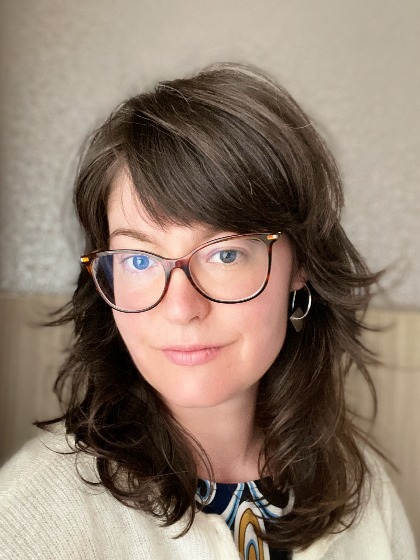K.S. (Kathryn) Roberts, Dr

My research and writing centers around the relationship between history and form, aesthetics and politics. How do experiences of living and working shape--and also limit--intellectual and aethetic production? I have a particular interest in institutions: the social forms created by other people that we find ourselves living though, and sometimes endeavor to build anew. They stabilize our activities, to make them last over time, but also lock in power relations. I see an interesting corollary between institutions and genres: as we contend with these inherited forms, we become aware of ourselves as historical actors. These interests have led me to write about the history and future of artist residencies (once known as artist colonies) as a format that gained particular traction in the United States in the early twentieth century, and since the 1990s has exploded as a global phenomenon. You can read more about my various research projects below.
The New Monastics: American Writers and the Dream of Creative Community
I am completing a book that explores the relationship between the communities that writers participate in and literary representations of the social world in classic American Literature. We usually associate Anglo-American modernism with a few key cities: Paris, London, New York, Chicago. But I’ve found that many U.S. writers in the modernist period were involved in a quiet exodus from cities to “writers’ colonies,” rural enclaves in places like Cape Cod, New Mexico, New Hampshire, and upstate New York. This book historicizes the writers' colony through four in-depth case studies of colonies (Provincetown, Taos, the MacDowell Colony, and Yaddo) and the writers whose work was changed by them (Eugene O'Neill, Willa Cather, Thornton Wilder, and Katherine Anne Porter). The colonies, which opened in the first three decades of the twentieth century and still operate today, were aggressive interventions into the “form” of a writer's life. Often compared to monasteries, these isolated communities removed writers from urban centers, set new daily and seasonal rhythms, and created new relationships among formerly unconnected artists, scholars, and patrons. A formal analysis of writers’ colonies, along with the texts that emanated from them, can help to explain key features of U.S. literature in this period. In particular, the colony experience nurtured a fascination with the literary possibilities of alternative spaces, or heterotopias. Chapters have been published in American Literary History and Modernism/modernity.
Artist Residencies, between Precarity and Utopia
Since 2019, I have been thinking with other scholars and practioners in a wide range of disciplines--sociology, art history, fine arts, curation, and more--about the unwieldy and global phenomenon of contemporary artist residencies. In 2022, I published a chapter with Dr. Sara Malou Strandvad in The Cultural Sociology of Art and Music that uses the residency to think through some methodological problems in cultural sociology, specifically the difficulty (and necessity) of bringing works of art into discussion of art's political economy. In 2023, I invited five residency researchers on three continents to join me in an exploratory project to consolidate and disseminate some of the knowledge around residencies that is currently scattered across disciplines and languages. You can read more about the project on our blog, hosted by Transartists, an organization dedicated to sharing knowledge about residenices. The project runs until 2025, supported by a Constructive Advanced Thinking Grant from the Network of Institutes of Advanced Study (NetIAS).
In addition to these projects, I also write, teach, and advise about U.S. literature and popular culture, from modernism to political podcasts to romantasy novels. With my colleague Dr. Tim Jelfs, I am currently advising two PhD projects on 21st-century U.S. culture: one by Hanne Nijtmans on the paranoid style in fictional podcasting and another by Kai Hopen on the politics of novels by MacArthur Fellows.
